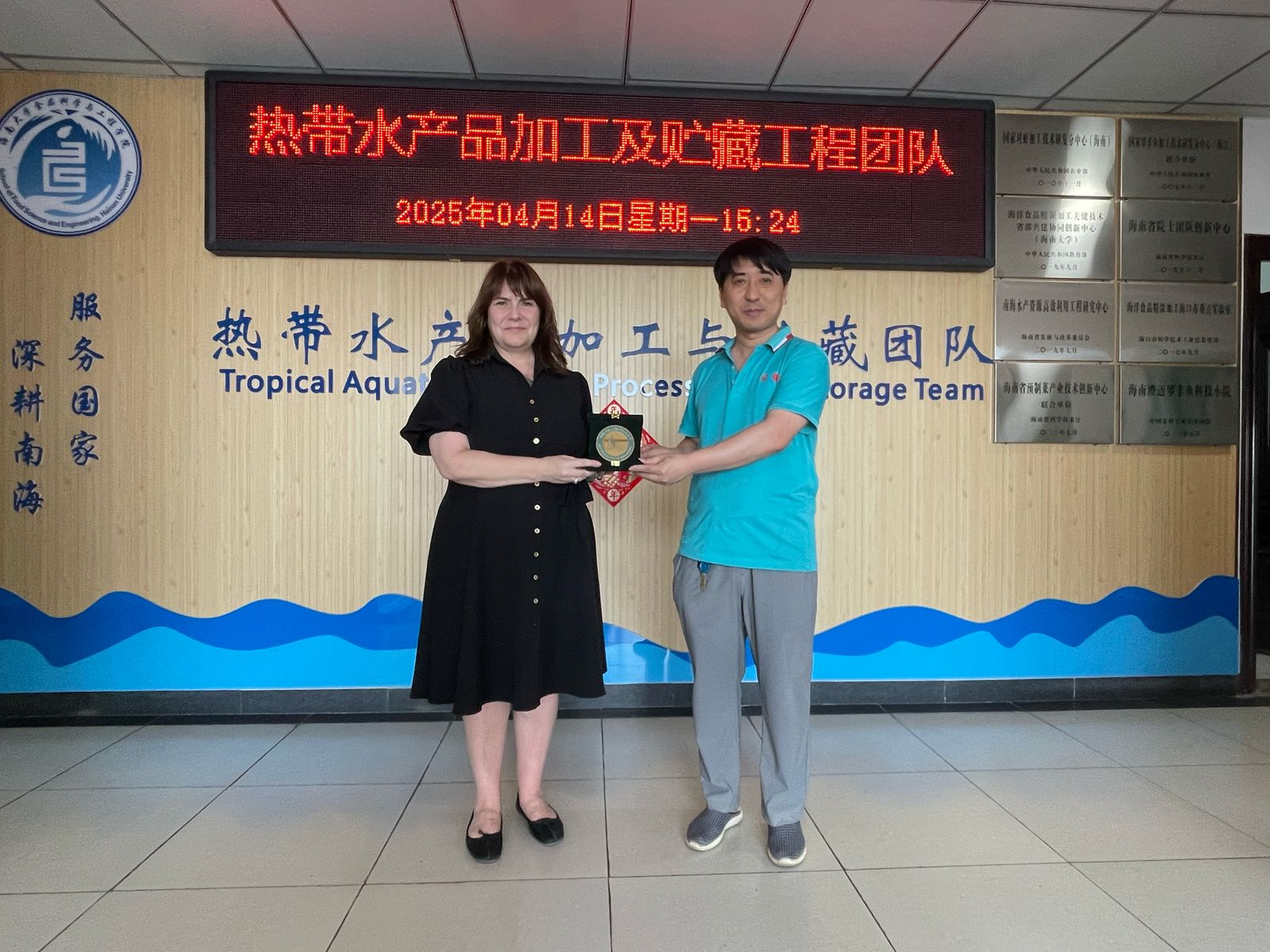Abu Dhabi Educator Forges Sustainable Ties at Tropical Universities Foru
Dr. Constance Van Horne, Director of the International Office and Executive Development at the Abu Dhabi School of Management (ADSM), has returned from a high-profile visit to Haikou, Hainan Province, China, where she participated in the League of Tropical Universities (LTU) Summit and Education Exhibition. Her visit, marked by warm exchanges and forward-looking initiatives, is being hailed as a boost for educational and innovation ties between Abu Dhabi and Hainan.
As a representative of ADSM, Dr. Van Horne helped showcase the institution’s focus on innovation, entrepreneurship, and international collaboration. ADSM, a subsidiary of the Abu Dhabi Chamber, is a leading business school in the UAE committed to empowering future leaders through programs in digital management, AI, business analytics, and sustainability. Its active engagement in global academic networks reflects its mission to blend management excellence with real-world impact.
Dr. Van Horne was an invited delegate at the LTU Summit, held from April 13 to 16 at Hainan University in Haikouh. The summit brought together representatives from tropical-region universities, government officials, and international organizations to discuss the future of higher education and scientific research in tropical regionsh. Hosted by Hainan University, this year’s summit featured forums on international digital education, high-efficiency tropical agriculture, the “One Health” approach to public health, cultural exchange, and green developmenthicn.cn. “It was inspiring to see experts from across the tropics share ideas on sustainable development,” Dr. Van Horne said. “There was a real spirit of collaboration, aiming to turn our regions’ unique challenges into opportunities.”
One highlight of Dr. Van Horne’s trip was visit to the lab of Professor Feng Aiguo of Hainan University – a senior researcher in food science. Dr. Van Horne brought the project idea to her MBA class at the Abu Dhabi School of Management (ADSM) for a thesis project that focuses on developing a localized product and business model for the Gulf market using fish collagen derived from tilapia farming byproducts. Tilapia, a common farmed fish in Hainan, produces collagen-rich skins and bones as waste. The project aims to transform this aquaculture waste into high-value biotech products – such as collagen supplements or skincare ingredients – tailored to Middle Eastern consumer needs. For Hainan, one of China’s top tilapia-producing regions, the concept has special significance: local farmers produce around 300,000 tonnes of tilapia annually, yielding abundant fish byproducts that can be repurposed. “We’re turning fish farming leftovers into a wellness product for the Gulf. It’s a win-win for sustainability and business,” Dr. Van Horne explained, noting that the idea combines Hainan’s strength in aquaculture with Abu Dhabi’s market insights.
The innovative collagen venture underscores growing opportunities in sustainable entrepreneurship and biotechnology. Global demand for marine-sourced collagen is on the rise, as fish collagen gains popularity as an eco-friendly alternative to bovine and porcine sources. Valued at over $1.1 billion in 2023, the fish collagen market is projected to exceed $1.6 billion within the next two years. Industry experts attribute this growth to collagen’s versatile uses in cosmetics, health supplements, and biomedical applications, as well as its appeal to consumers seeking “greener” products. In the Gulf region, too, collagen-based beauty and health products are in demand, aligning with trends Dr. Van Horne and Prof. Feng aim to capitalize on. “By leveraging Hainan’s research and Abu Dhabi’s entrepreneurial know-how, we hope to create a product that is both culturally and commercially suitable for the Gulf,” said Professor Feng, who specializes in food science and biotechnology. He noted that fish-derived collagen is considered safer and more acceptable in many markets, including the Middle East, compared to other animal collagens.
Beyond the single project, Dr. Van Horne’s presence at the LTU Summit has helped strengthen broader ties between Abu Dhabi and Hainan. On the sidelines of the forum, she met with educational leaders and discussed exchange programs that could send students and researchers from the UAE to Hainan and vice versa. Hainan University, which serves as the LTU alliance’s secretariat, recently signed dozens of agreements with partner institutions to promote cross-border education and technology transfer. Dr. Van Horne expressed enthusiasm for Abu Dhabi to be part of this network. “There is tremendous potential for our faculty and students to collaborate on tropical research and innovation,” she noted, highlighting areas like sustainable agriculture, marine science, and renewable energy as mutual interests. “Bridging the Gulf and Hainan not only enriches academic insight, but also builds cultural understanding.” Observers say such cooperation aligns with the UAE’s focus on knowledge exchange and China’s push for international partnerships under initiatives like the Hainan Free Trade Port.

